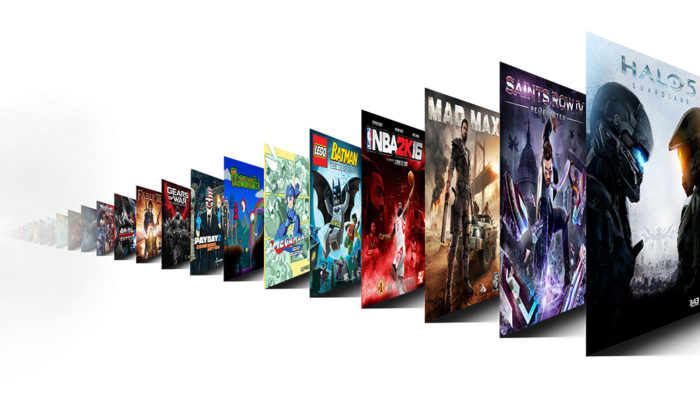Xbox Game Pass is a monthly subscription service costing £7.99/$9.99 that gives you unlimited access to a large library of games. Any game in the library, which according to Microsoft will update each month, can be downloaded and played online or offline whenever you like, provided you’re still paying your monthly membership. On paper, it sounds like an excellent idea, but is this service enough to persuade people to shift to the Xbox platform?
Microsoft is facing an uphill battle at the moment. It’s become increasingly clear that they aren’t going to catch up to Sony and their monstrous PS4 sales, the PS4 has generally been outselling the Xbox One by about 2:1. On top of that though, the strong sales of the Switch has pushed Microsoft into a corner. Xbox fans are likely to already have invested in an Xbox, and it seems more and more likely PlayStation fans will choose the Switch as their secondary consoles because of its portability. It’s clear that Microsoft needs something to draw in new customers, and it seems Xbox Game Pass is one way they want to do that.
It’s library, while not huge, has a fair few gems that make it a strong option for someone just getting into gaming on Xbox. Halo 5 is an obvious standout; it may be over a year old but the game has gotten better with age, featuring more maps, more game types and many new features for players to get to grips with, including the long awaited custom games browser. The library also includes Gears of War 1-3, Judgement, and Ultimate Edition. Borderlands, Saints Row, Viva Piñata, BioShock, and Sunset Overdrive are just a few of the other gems available as well. If you’re gaming on a budget, this is one way of getting serious value out of each dollar, provided you’re willing to experiment with a few games to find ones that appeal to you. To that point, the library is suitably diverse as well, with at least a couple of offerings for most genres you could think of.

In a lot of ways, it makes sense. The advent of video streaming has been slowly making the old TV distribution model obsolete, and it’s surprising it’s taken so long for the gaming industry to take notice. It’s not hard to see how Microsoft could look at Netflix and Amazon Prime and say to themselves “surely we can do that.” Sony took notice, PS Now has been doing this for a little while. However, it’s priced significantly higher, doesn’t allow for offline play and splits its library into games that can be accessed as part of the subscription service, and games that can only be rented for play. Xbox Game Pass doesn’t have these specific caveats, but as a result, has its own set of flaws.
Firstly, its library is smaller. Xbox Game Pass is launching with only 112 games, whereas PS Now has over 450. Secondly, while there are advantages to being able to download the games for offline play, it limits the accessibility of the service. A PS Now subscriber can play as many of the games in that library whenever they want, with Xbox Game Pass you are limited by your hard drive space and will need to wait for each game to download before you can play it. When you consider those disadvantages, Xbox Game Pass becomes a much less compelling reason to buy an Xbox One.

But even all those points still don’t get to the crux of the main issue. Xbox Game Pass, Project Scorpio, they’re all band-aids trying to fix a far too serious wound. Xbox doesn’t have the games. Sony has a large back catalog of strong AAA exclusives on the PS4 already, with much more lined up for this year and next. Nintendo has some of the most loved franchises in their arsenal, and a strong lineup of games releasing through the year. As it stands, Microsoft is clearly lagging. A games console and its services are only as good as they games you can play with them.
That doesn’t mean that Xbox Game Pass isn’t good value, or that it doesn’t have the ability to become a more compelling service in the future. As more games, and perhaps, more importantly, newer titles get added to the library, it becomes a more promising investment for people. If the service adds enough games each month, this could be something that’s worth considering.
At the end of the day, Microsoft should be commended for pushing the boundaries of the traditional games distribution model. Increasingly they seem to be throwing out the rule book and trying new things, and this can only be a good thing for consumers. But the issues they have in the industry aren’t related to their hardware, or even their services, but the games themselves. Until they can bolster their library with a suite of must-play AAA exclusives, no amount of hardware revisions, subscription services, or cross play features will persuade people to pick up an Xbox console. Perhaps, come E3 we will see how this all plays into Microsoft’s master plan. Until then, we’ll just have to wait and see what they have in store for us.
This post was originally authored by David Buckley.





Published: Jun 5, 2017 10:30 am